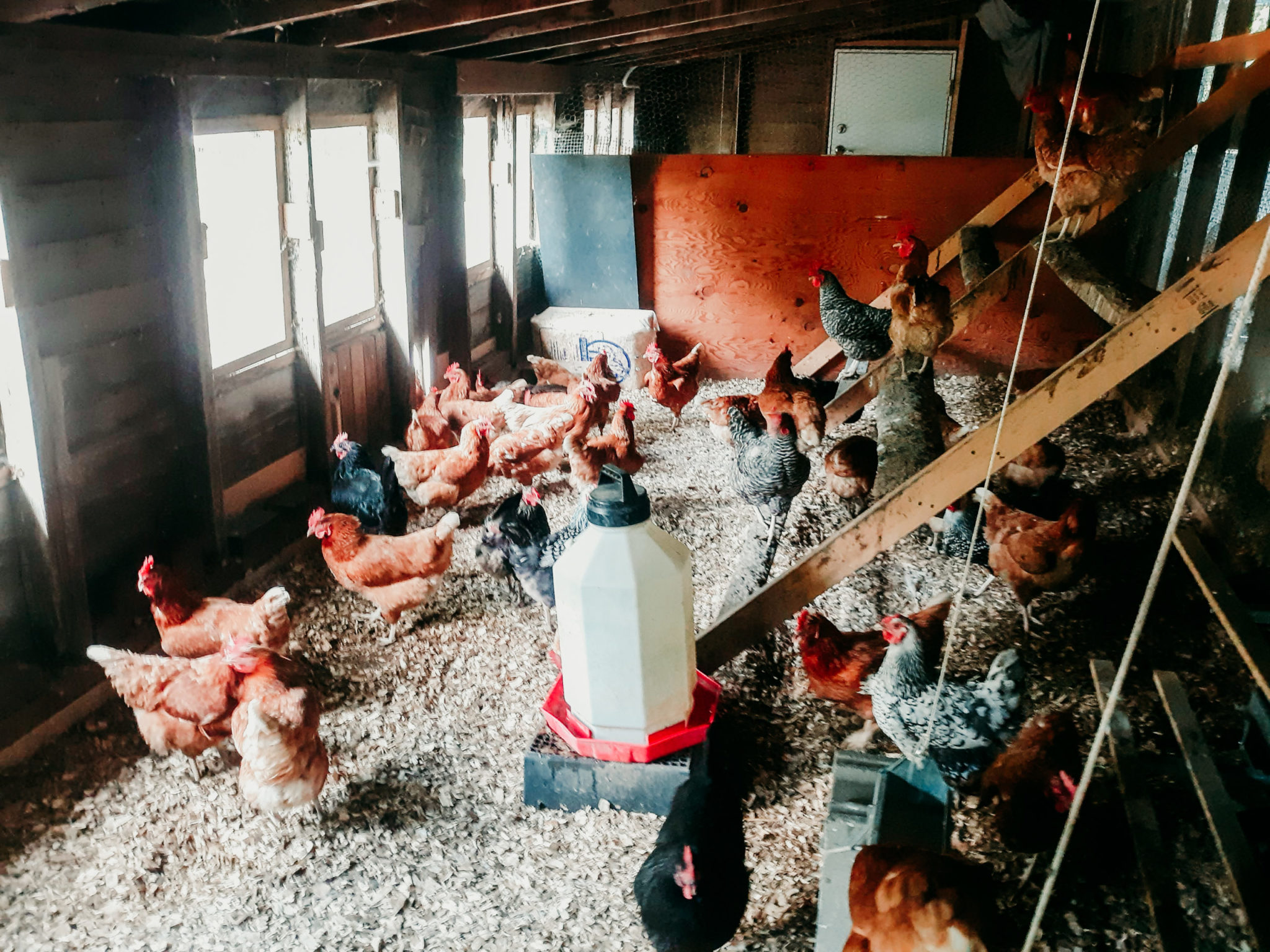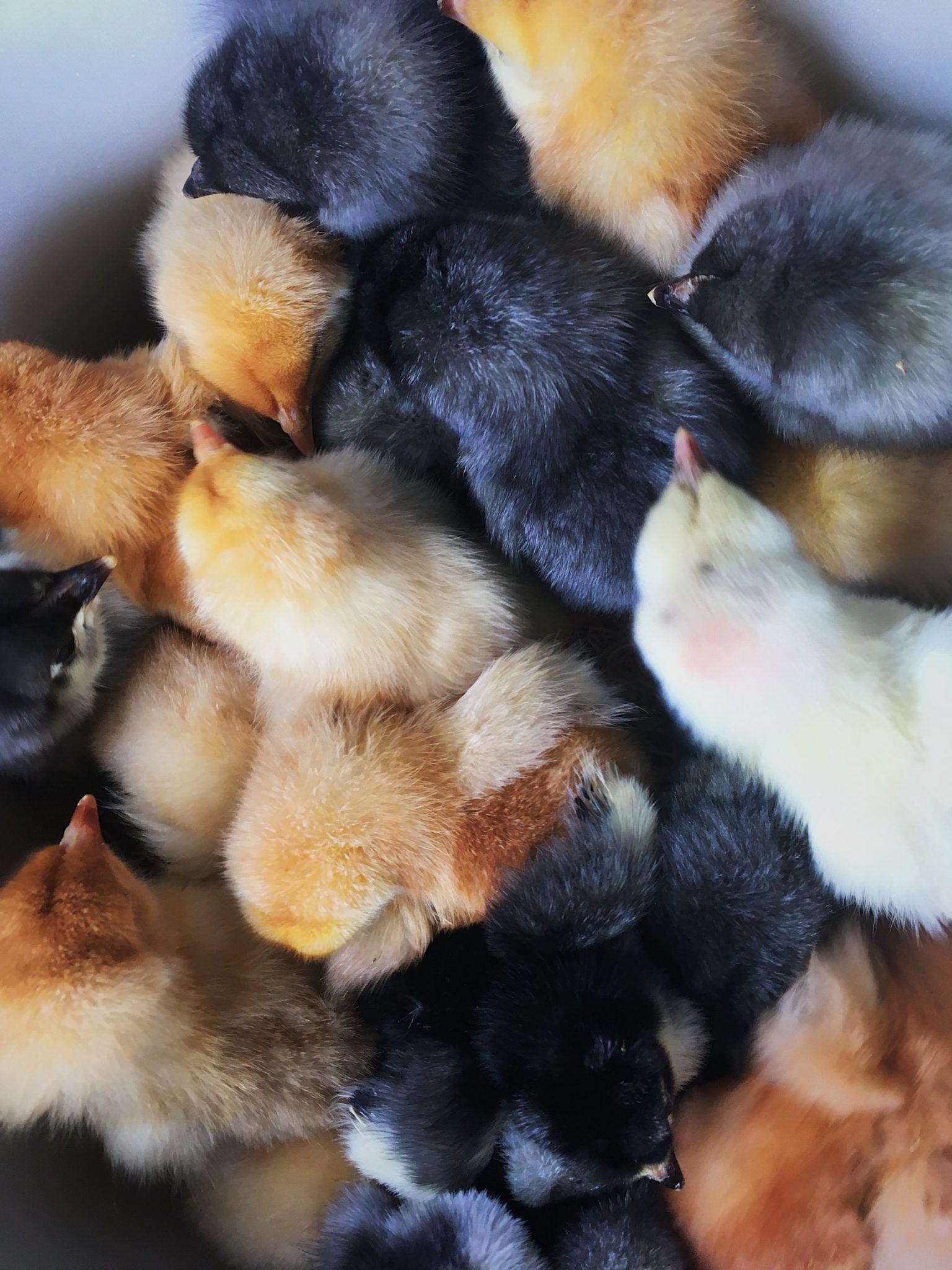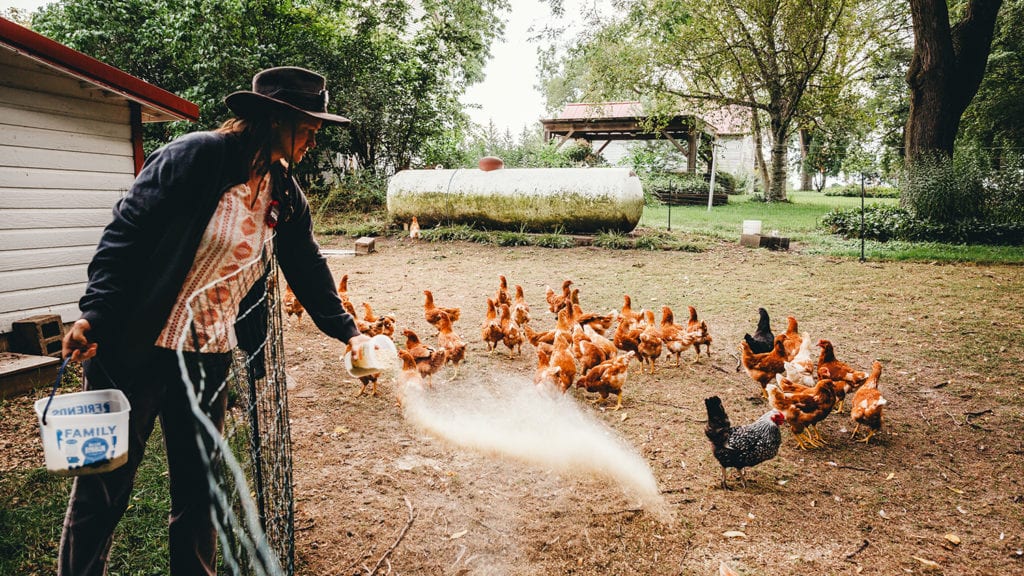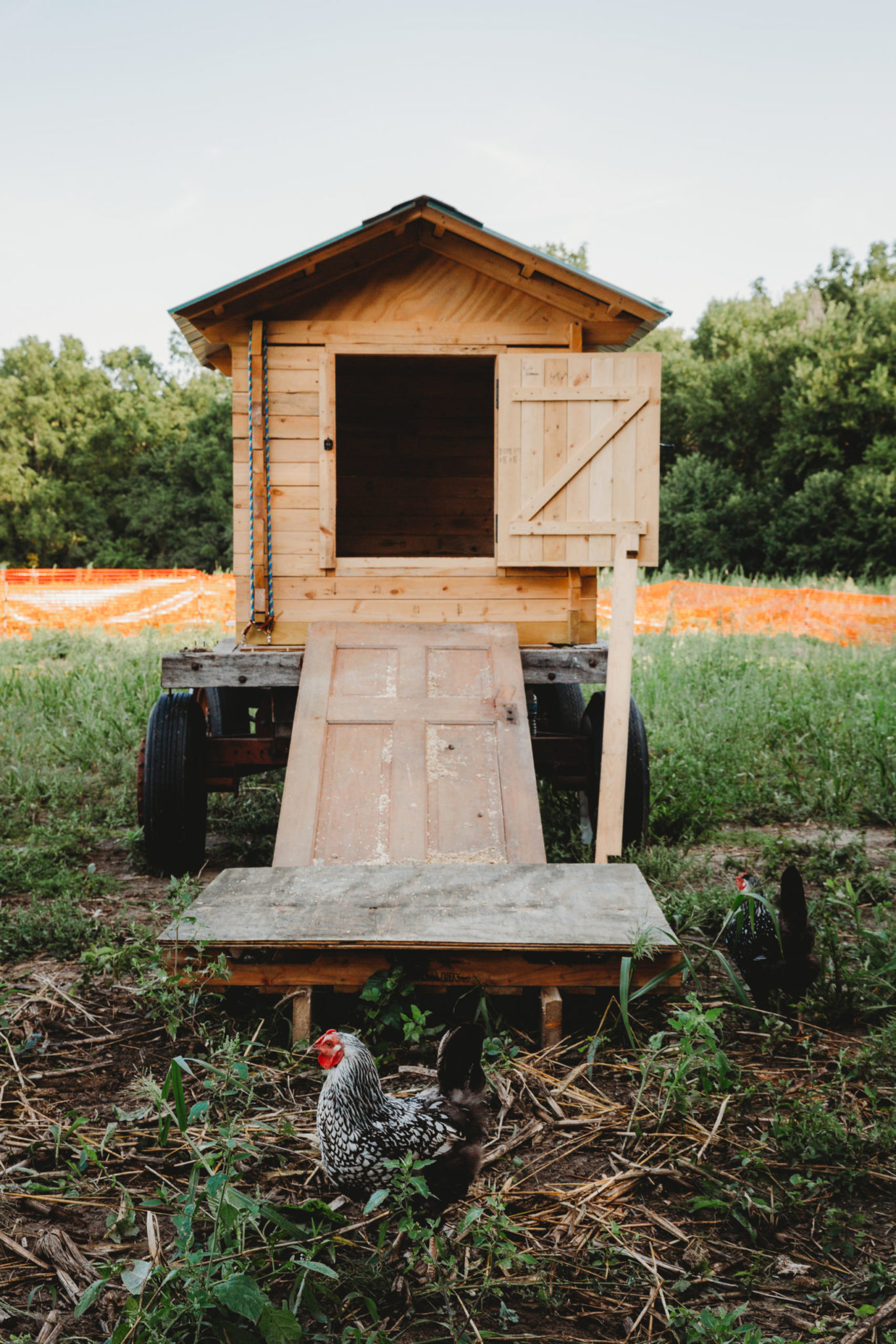
By Director of
Land Stewardship
Jean Wiedenheft

The chicken house at Sugar Grove Farm is full, with 99 ISA Brown organic hens from Hoover’s Hatchery.
Why ISA Browns? They are the top egg producer, laying 300 large brown eggs annually. The Nature Center won’t be getting more chicks in 2021 because the Chicken House is at capacity. Giving birds adequate space is key in managing flock health. But at home, I needed to replace a few roosters with hens.
Who is in my box of chicks?

- Buff Orpingtons, one of the friendliest and cold-hardy birds available. They lay 220 medium eggs a year.
- Rudd Rangers, who grow up to 11 pounds and like to free range, making them an ideal meat bird.
- Sapphire Gems, who are good foragers and lay 290 large brown eggs a year. Like the ISA Brown, Sapphire Gems are sex-linked. If you get them as eggs or as straight run (which are cheaper), you can tell the males and the females apart based on their color as chicks.
- Blue Andalusians, a small, rugged heirloom breed who needs to free range and lays 280 medium white eggs a year.
Why the assortment? Hatcheries need to ship chicks in bulk to keep them warm during transit. Two of my neighbors joined with me to meet the minimum order, and we all have different priorities for our flocks. For example, I only need two birds, and they have to be very independent (think Blue Andalusian).
A few tips if you are looking at getting birds yourself:
- Order from a hatchery close to you. Hoover’s Hatchery and Murray McMurray Hatchery are both great choices in Iowa, and both ship throughout the United States if you don’t have a reputable hatchery close by. Shipping is free from either supplier. Hoover’s Hatchery offers detailed information about each breed on its website, allowing you to pick birds that are right for you.

- Participate in the Nature Center’s backyard chicken program (see upcoming dates & register here). It is a great educational experience, will enable you to network with other bird-lovers, and participation can be over the internet. The program is geared toward helping manage small urban flocks.
- Get your chick set up ready before you order birds. They will need a good box, chick feed crumbles, medium to course shavings, a heater, a waterer, and a feeder. It sounds simple, but like anything else can be overwhelming at the last minute, when you are staring at the box of chicks on the passenger seat of your car. I also provide my birds with a radio, tuned to a classic station.
- Get your chicken house set up before you order birds. When mature, each bird will require a minimum of 2.5’ of indoor space and 10” of roosting space. If they are too crowded, they are susceptible to diseases and fighting. The size of your chicken house will help determine how many birds to buy.
Learn more about chicken care on our urban chicken page.
Many local municipalities now allow hens to be kept in city limits upon successful completion of ICNC’s Backyard Chicken Workshop, which we now offer virtually. The workshop teaches the basics of safely and successfully raising chickens in urban and suburban areas. Participants will receive a certificate of completion, enabling them to receive a permit to legally keep chickens in a number of nearby communities (see the full list here).



